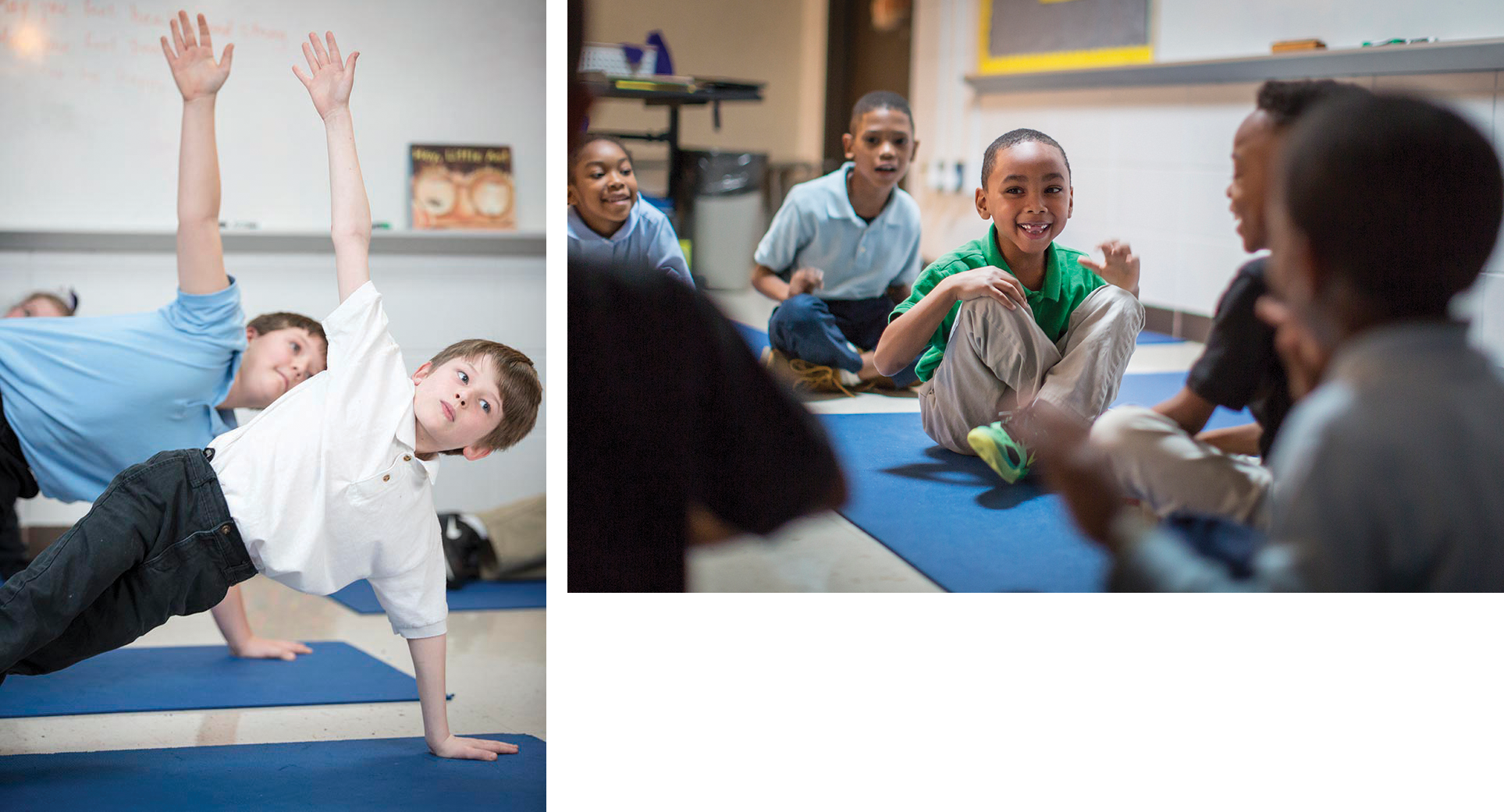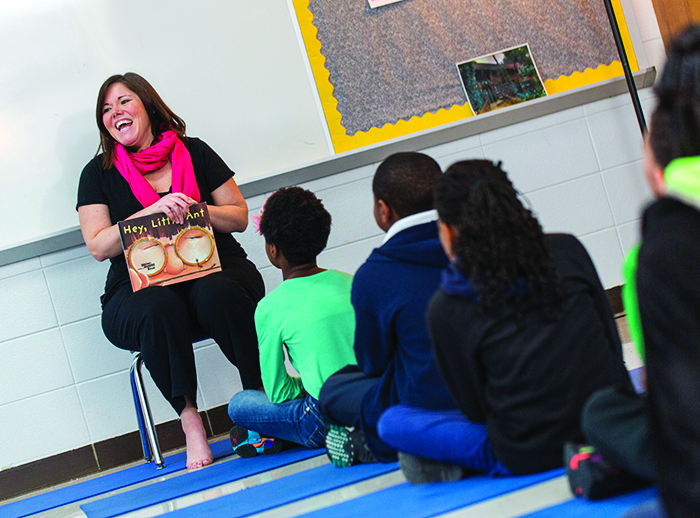Turning Down the Stress

Young students today face new forms of stress unknown to previous American generations. Whether resulting from the ceaseless nature of the new electronic age or pressures from households where adults must navigate the gig economy, these stressors affect students’ ability to learn. That’s why educators are looking at new ways to help children find presence of mind at school.
The Compassionate Schools Project (CSP), a Louisville, Kentucky-based whole child health and wellness program developed by UVA researchers, aims to facilitate the development of mind and body by providing support in mindfulness, physical health, and compassionate character. These skills can provide students with the mental space for academic curiosity and engagement during the school day.
CSP incorporates two to three hours of training into children’s weekly school routines. By teaching kids the soft skills that improve their ability to focus, behave, think clearly, and relate well to others, the program paves the way for academic achievement and overall life success.
“In the Health and Wellness class, fourth- and fifth-grade students set goals to help manage stress,” said Chris Wedding, a CSP teacher at H.B. Slaughter Elementary in Louisville. “One fifth-grader reported that she now leaves her electronics outside her room when she goes to bed so that she can rest better. A lot of students tell me that they are making healthier food choices.”
If the program works in Louisville (a diverse and in many ways, typical American city), researchers believe it can work anywhere. CSP is a partnership between UVA, the city of Louisville, and Jefferson County Public Schools. The University’s Curry School of Education, Youth-Nex Center, and Contemplative Sciences Center have been instrumental in bringing the program to life, and funding from committed donors is helping the program reach its full potential.
Multiple individuals, along with local and national foundations and companies, have contributed to the project since it began in 2014. The most recent commitment—a second grant from the Robert Wood Johnson Foundation—brings the total private investments to almost $9 million, pushing the program closer to its $11.75 million goal.

The program’s unique curriculum focuses on the whole child, packaging training areas into a single, well-written program that meets state and national standards. Its four components are:
- Mindfulness for self-awareness and stress resiliency
- Contemplative movements for physical awareness
and agility - Nutrition education
- Social and emotional skills training
The CSP curriculum was successfully piloted in three schools for a year before its full launch in 2016–17. When the project ends in 2021, 50 schools and 20,000 children will have participated. Half will participate in the CSP program for two years, while the other half will continue with an existing curriculum. Students will be evaluated after the curriculum has been delivered to determine the long-term impact.
That impact could extend for years, driving an entire movement toward health and wellness—and ultimately changing the trajectory of students’ lives, with reverberating effects on an even larger scale.
For more information about the Compassionate Schools Project, visit compassionschools.org.
Notable Gifts: Aetna Foundation / Ambassador Matthew Barzun and Brooke Brown Barzun / A. Cary Brown and Steven E. Epstein / Christina Lee Brown / Eliza Brown / Victoire Brown and Owsley Brown III / C.E. and S. Foundation / Margaret Brown de Clercq / Patricia Gabriele and Vincenzo Gabriele / Gheens Foundation / Hemera Foundation / Augusta Holland and Gill Holland Jr. / Humana Foundation / James Graham Brown Foundation / Paul Tudor Jones and Sonia Jones / Norton Foundation / Robert Wood Johnson Foundation

